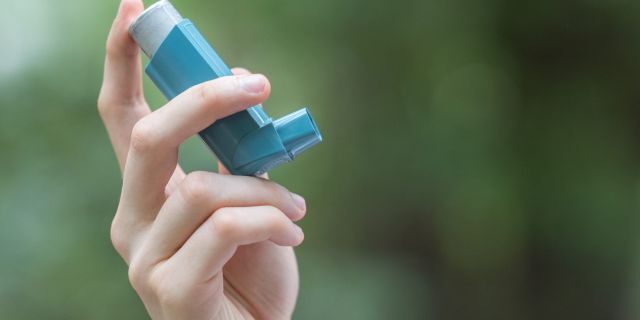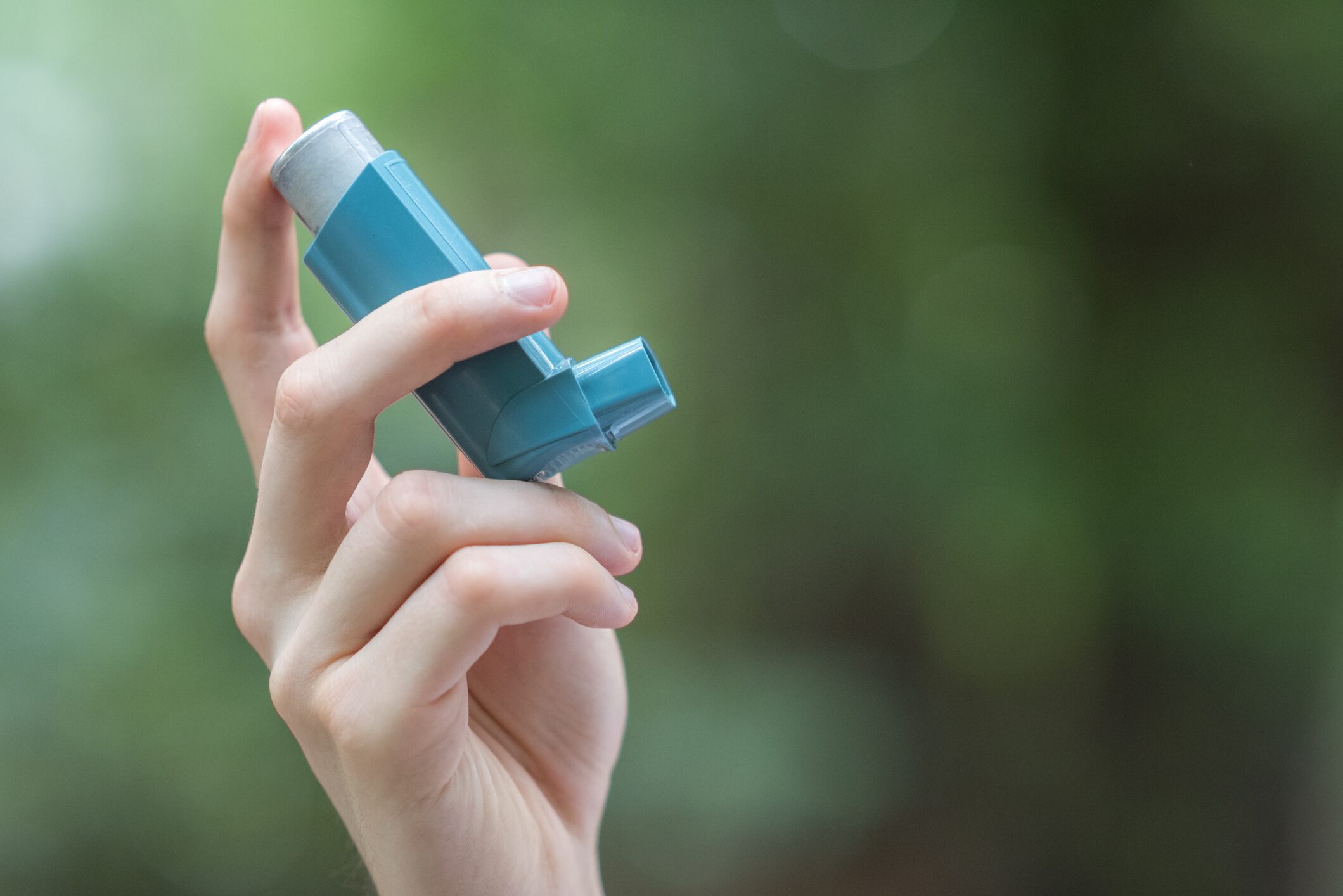[ad_1]
If you suffer from asthma, you may be wondering: How could the novel coronavirus, known as COVID-19, affect you differently?
It’s well known that other respiratory conditions, such as the common cold or flu, can trigger asthma symptoms, possibly leading to an asthma attack, according to the Asthma and Allergy Foundation of America. But Is the same true for the novel coronavirus?
CLICK HERE FOR COMPLETE CORONAVIRUS COVERAGE
Fox News spoke to Dr. David Hill, a volunteer medical spokesperson for the American Lung Association, on this topic. Read on for a look at what we know about COVID-19 and how it relates to asthma.

If you suffer from asthma, you may be wondering: How could the novel coronavirus, known as COVID-19, affect you differently?
Is there evidence that asthma sufferers may be more susceptible to the novel virus than non-asthma sufferers?
Not yet, said Hill.
“There is no clear evidence that patients with asthma are more susceptible to being infected with COVID-19. Any viral infection can lead to a worsening of asthma, so patients with asthma and particularly those with more severe disease could be more severely affected by COVID-19,” he said.
Is the information on how other coronaviruses affect asthma sufferers helpful during this time? Why or why not?
EARLY SYMPTOM OF CORONAVIRUS MIGHT BE DIGESTIVE ISSUES: STUDY
“There is very limited data about other severe coronavirus infections and asthma. Both SARS and MERS were more severe in patients with underlying lung disease, but this would include patients with COPD and other respiratory conditions along with asthma,” said Hill. “The milder coronaviruses which cause common cold symptoms are associated with asthma in children. Again, we can expect that COVID-19 infection may lead to increased asthma symptoms, but not necessarily that well-controlled asthmatics would fare worse than age-matched peers.”
What type of extra precautions should asthma sufferers take, if any, during the coronavirus pandemic?
In short: Make sure you stock up on asthma medications.
“It is important that patients continue their usual asthma medications to keep their disease controlled. They should make sure they have the longest supply of medication that their health insurance and finances will permit,” Hill said. “Most important is for them to rigorously follow the social distancing recommendations. Stay home, avoid others, wash your hands. It is very difficult to get COVID-19 if you are not seeing others and social distancing will limit the spread.”
Should people with asthma wear facemasks?
CORONAVIRUS AND TOILET PAPER: WHAT DRIVES PEOPLE TO ‘PANIC-BUY’?
No, said Hill.
“The general public does not need to wear masks, particularly in our current period of short supply of equipment,” Hill said. “Use of masks needs to be prioritized for health care workers on the front lines. Masks are not designed to be used continuously and will lose efficacy.”
“If you touch the outside of a mask that has the virus on it, you will contaminate your hands. Masks can [also] give a false sense of security. Again, social distancing is the key,” he added.
Speaking of face masks, how effective are they really?
“Surgical masks will not prevent your acquiring diseases,” Dr. William Schaffner, a professor of preventive medicine and infectious diseases at Vanderbilt University, and the medical director of the National Foundation for Infectious Diseases, previously told Fox News. Read more on why that is here.
What should someone with asthma do if a family member they live with contracts the virus?
“If a family member of an asthmatic patient or anyone else contracts COVID-19, that family member should isolate themselves per the current [Centers for Disease Control and Prevention (CDC)] recommendations,” Hill said. “Those residing with them should follow the CDC recommendations for cleaning and avoiding infection. If family members of infected patients develop symptoms, they should contact their health care provider regarding testing options.”
Why could having asthma put someone more at risk for complications if they catch the virus?
CORONAVIRUS PROMPTS PEOPLE TO WORK FROM HOME: HOW IS POSTURE AFFECTED?
In short, contracting COVID-19 could worsen an asthma sufferer’s symptoms.
“Asthma may put patients at increased risk if they contract COVID-19 because the virus may worsen asthma. This is more likely to occur in patients who have more severe disease,” said Hill. “Older patients, in general, are at much higher risk for COVID-19 complications with or without asthma. Some of the medications we use to treat asthma are immunosuppressive and could make asthma patients more susceptible to COVID-19 infections.”
That said, “Patients should not stop or change their medications as the risk of uncontrolled asthma outweigh any increased risk of infection,” reminded Hill. “In the event that a patient with asthma becomes ill with COVID-19 and requires hospitalization, their care team will make appropriate treatment decisions based on the best available evidence at that time.”
[ad_2]
Source link

